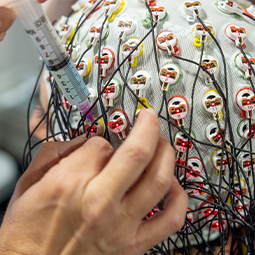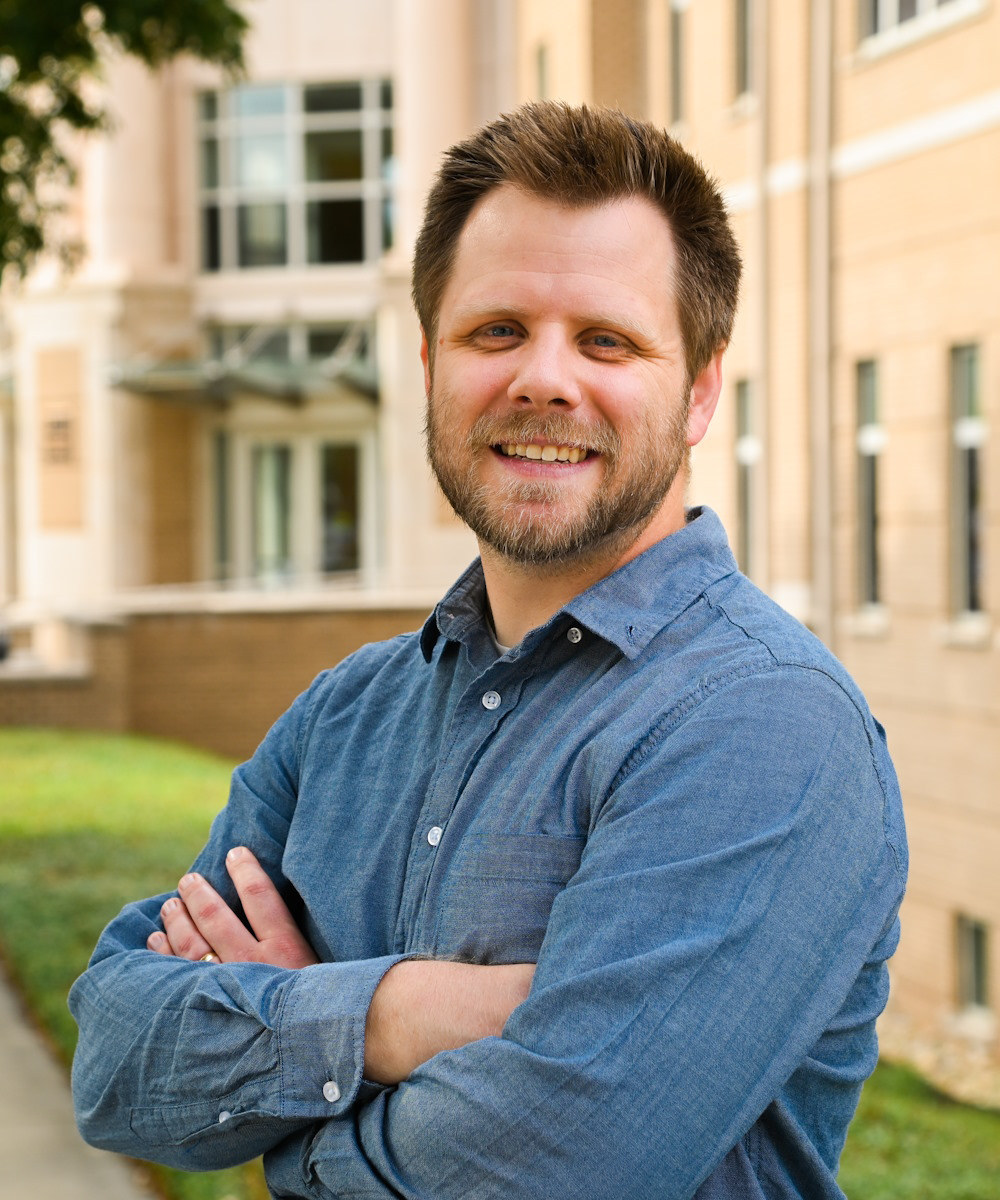
Find Out More
The Ph.D. in Communication Sciences and Disorders degree prepares professionals for academic careers, and therefore its emphasis is on research and the scholarly study of the science of human communication and its disorders.
October 1, 2024 | Erin Bluvas, bluvase@sc.edu
Thomas Christensen helps people age-in-place. His goal is to support adults with neurodevelopmental disabilities stay where they are – whether that’s an assisted living facility, or the home of a caregiver, or their own residence. And he’s using communication sciences and disorders (COMD) to do it.
The Ph.D. in COMD student spent six years as a speech-language pathologist before enrolling at USC. Though he was working with patients with age-related declines (not neurodevelopmental disabilities), his experiences working at a retirement community inspired his research focus. Seeing patients at a nursing home and during house visits, Christensen’s main goal wasn’t to stop the progression of a disease or aging. Instead, he looked for different supports that could help patients avoid moving to a location that would require additional assistance and likely restrict independence.
“I had one patient who didn’t want to move from independent living to assisted living after a stroke,” Christensen says. “So, I worked with her and her family to come up with modifications like finding a suitable apartment and remembering how to buzz people into the building.”
For a patient with progressive aphasia, he had to think outside the box for ways to help the client retain his ability to communicate. Christensen created a simple book of words/phrases and pictures and taught the patient and his nursing staff how to use it – enabling him to say in assisted living.
“Each patient was so vastly different, and I loved it, but the goal was always to identify what supports could we put in place to maximize the person’s independence and help them stay living where they wanted to live for as long as possible,” Christensen says. “When I began working at a pediatric outpatient clinic, I asked myself the same questions regarding what supports could we put in place to help children maximize their independence.”

This focus is what led him to the Arnold School, where COMD associate professor Jessica Klusek works with neurodivergent patients and their families to optimize communication and well-being across the lifespan. As a graduate research assistant in Klusek’s Family Experiences Lab, Christensen contributes to research related to autism and fragile X syndrome. The team uses a family-centered approach, which fits perfectly with his own philosophy.
“It is so important to find an advisor and mentor who fits with you well, and I am very lucky to work with Dr. Klusek,” Christensen says. “She has been supportive and helpful in a way that works really well for me, and I’ve benefited from working with others in the lab like postdoctoral fellow Laura Friedman, who has helped me see what the next step of my career could look like.”
That career will likely take place in an academic setting. Christensen is looking forward to applying his research on environmental and contextual modifications to develop interventions that support adults of all ages who have neurodevelopmental disabilities. He’s particularly interested in the social determinants of health and the role they play in the aging process for this population and was even awarded a Summer Scholarship from the National Fragile X Foundation to support his research in this area.
It's a path that began when Christensen discovered his interest in linguistics and learned about the speech-language-pathology profession from his sister while growing up in Payson, Utah – a town known for growing onions and serving as the backdrop for the 1984 film, Footloose. After earning a bachelor’s degree in communication disorders and deaf education (fun fact: he minored in Portuguese) at Utah State University, he completed a master’s in speech-language and pathology at the University of North Carolina Chapel Hill.
When he arrived at USC six years later, it was with two daughters in tow. They have loved the beautiful campus and culture as well as their experiences in the state’s capital city.
“I feel like Columbia has been a great fit for my family,” Christensen says. “There are a lot of parks for my kids, and they both love taking walks along the river and going to the zoo.”